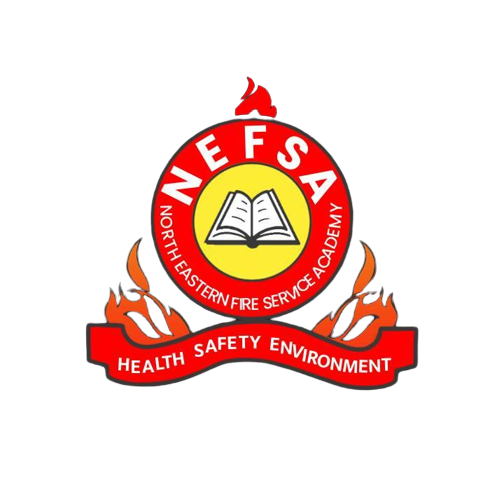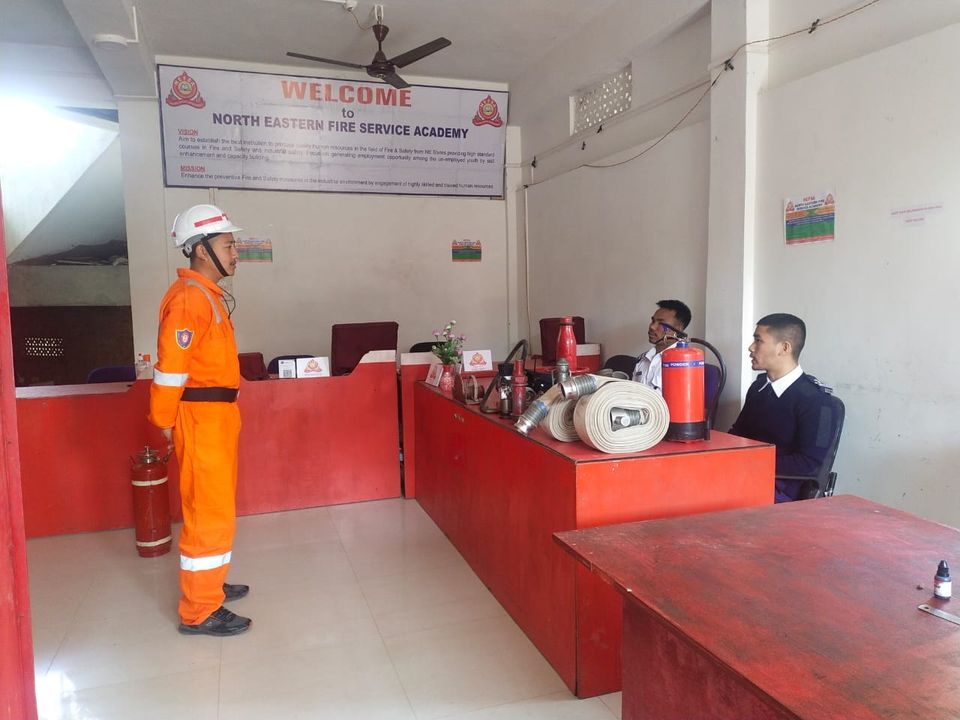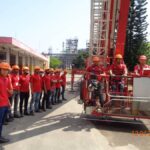Handling hazardous materials (Hazmat) emergencies requires specialized knowledge and skills to mitigate risks effectively. NEFSA Fire Academy Dibrugarh is at the forefront of providing comprehensive Hazmat training to firefighters, equipping them with the expertise needed to handle such critical situations. In this blog post, we will delve into the extensive Hazmat training offered at NEFSA Fire Academy Dibrugarh and how it enables firefighters to develop the necessary expertise to safeguard lives, property, and the environment.
Understanding Hazardous Materials:
NEFSA Fire Academy Dibrugarh begins by imparting a deep understanding of hazardous materials. Firefighters learn to identify different types of Hazmat, their properties, and potential risks associated with them. This knowledge forms the foundation for effective Hazmat response and mitigation strategies.
Risk Assessment and Hazard Analysis:
Firefighters are trained in conducting thorough risk assessments and hazard analyses during Hazmat incidents. NEFSA Fire Academy Dibrugarh teaches them how to evaluate the potential dangers, anticipate outcomes, and prioritize safety measures. This proactive approach helps mitigate risks and protect both responders and the public.
Personal Protective Equipment (PPE) Usage:
NEFSA Fire Academy Dibrugarh emphasizes the importance of using appropriate Personal Protective Equipment (PPE) during Hazmat incidents. Firefighters are trained to select, wear, and utilize PPE effectively to safeguard themselves and prevent contamination or exposure to hazardous substances.
Decontamination Techniques:
A crucial part of a Hazmat reaction is decontamination. Decontamination protocols are thoroughly covered in training at the NEFSA Fire Academy in Dibrugarh, including the right ways to get dangerous compounds out of people, equipment, and the environment. The value of decontamination areas and protocols to prevent the spread of hazardous materials is taught to firefighters.
Spill Control and Containment:
Proper spill control and containment are vital to prevent the further spread of hazardous materials. NEFSA Fire Academy Dibrugarh teaches firefighters effective techniques to control and contain Hazmat spills. They learn about different containment methods, leak-sealing procedures, and the appropriate use of absorbent materials.
Emergency Planning and Response:
With the aim of ensuring well-coordinated emergency planning and response, NEFSA Fire Academy Dibrugarh provides training to firefighters in developing incident action plans, establishing command structures, and executing efficient Hazmat response operations. Additionally, firefighters gain valuable skills in incident communication, resource management, and coordination with other agencies. This comprehensive training equips them to actively handle Hazmat incidents with confidence and expertise.
Conclusion:
NEFSA Fire Academy Dibrugarh equips firefighters with the expertise to handle hazardous material incidents through comprehensive Hazmat training. Firefighters develop the necessary skills to mitigate Hazmat risks effectively, including understanding Hazmat properties, conducting risk assessment, utilizing PPE, implementing decontamination techniques, controlling spills, and planning emergency responses. To join our academy click www.nefsaindia.com







